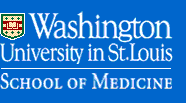


 |
 |
 |
|
|
The Early Genes Early-onset breast cancer poses challenges for young women — and opportunities to analyze the genetics of cancer |
||||||
|

Educational materials distributed by the Young Women's Breast Cancer Program |
Imagine a waiting room in a gynecologist's office. Two women idly thumbing through the back issues of Newsweek and Elle are about to be told they have breast cancer. One woman is in her seventies; the other is 29. Does their age matter? Yes, says Jennifer Ivanovich, a genetic counselor with the Siteman Cancer Center. These women would likely face different emotional, social and medical challenges. To help address the special needs of breast cancer patients under age 40, Ivanovich directs the Young Women's Breast Cancer Program (YWBCP), which offers support and education — and now conducts research as well. Two years ago, the YWBCP began a genetic research project, led by Ivanovich and Paul Goodfellow, PhD, co-director of Siteman's Hereditary Cancer Core, to look for breast cancer risk factors in the DNA of young women with breast cancer.
Researchers Jennifer Ivanovich and Paul Goodfellow, PhD, review genetic data. Out of the more than 200,000 women diagnosed with breast cancer in 2006, only about 11,000 were under age 40. Although that's not unexpected — after all, older age is one of the greatest risk factors for developing breast cancer — it does mean that less attention and fewer research dollars are devoted specifically to breast cancer in younger women. In response to this gap, Ivanovich started the YWBCP in 2001 with Virginia Herrmann, MD, a former faculty member at the School of Medicine. The support and education services offered by the program are sponsored by the St. Louis affiliate of the Susan G. Komen For the Cure Foundation. The Barnes-Jewish Hospital Foundation currently funds the research program. "Younger women diagnosed with breast cancer deal with a different set of issues than older women," says Ivanovich, who is also a research instructor in surgery. "They may be in the early or middle stages of their careers. They may have young children or are planning to start a family. And they usually have almost no experience in making complex medical decisions." Suddenly these young women find themselves with a breast surgeon, plastic surgeon, medical oncologist and radiation oncologist. In short order, they need to learn about chemotherapy and radiation, about lumpectomies and mastectomies, about metastases and mutations — all while juggling the demands of work and family. Granted, breast cancer treatment isn't easy for anyone. But younger women are more often diagnosed at a later stage of the disease and often have tumors that are not responsive to hormonal therapies, limiting their treatment options. They have more aggressive tumors and can require stronger treatments, including surgery, pre- or postoperative chemotherapy and radiation therapy. Like most women with breast cancer, young women face unpleasant side effects such as hair loss, fatigue, disfiguring surgery and an especially sensitive issue — potential infertility. In contrast to older women, young women often go through treatment while caring for their young children and maintaining their jobs. "The YWBCP offers these young women a comprehensive program," Ivanovich says. "We have monthly programs to promote good health that include exercise like yoga, hiking or biking. Each month we bring in professionals chosen by the women to present on various health-related topics. Our Peer Network pairs young women with mentors who have been through the experience. And an annual symposium helps educate young survivors about therapies, psychological issues, health, nutrition and a lot more."
YWBCP employees and breast cancer survivors Jennifer Staed, left, and Pamela Evans review literature at the Siteman Cancer Center's Barnard Health and Cancer Information Center. The program also prepares and distributes a news magazine and a personal journal that guides women through every stage of treatment and recovery. According to Ivanovich, very few materials like these exist in the country. But Ivanovich hoped the program could also have an impact on breast cancer outcome, so she became involved in researching breast cancer genetics. The research program that she and Goodfellow direct collects DNA samples from young women with breast cancer, ultimately aiming to invite 5,000 women to participate. These women are important research subjects because early onset of cancer is a sign that the disease has a large inherited component — that is, it could stem from a mutation passed on from parent to child. So studying young patients could make it easier to identify genes associated with breast cancer. "In general, cancer is a disease of later life," says Goodfellow, professor of surgery, genetics and of obstetrics and gynecology. "Over the course of a lifetime, you acquire genetic damage, but it takes a long time for one cell to get those five or six mutations that would make it malignant. However, if you have a predisposing mutation at birth, you're already on a path that could lead to early onset." A small number of inherited mutations — such as the well-known mutations in the BRCA1 and BRCA2 genes — have already been linked to breast cancer in other studies. Although these mutations greatly increase the risk of developing breast cancer, they are very rare in the overall population and account for only five percent of all women diagnosed with breast cancers in the United States. The researchers designed their study to compare the genetic makeup of young breast cancer survivors with that of women over 65 who don't have breast cancer and also have no mother, sister or daughter with the disease. The scientists are convinced that when they set the genetic sequences of these very high and very low risk groups side by side, genes associated with breast cancer will come to light. In a second stage of the analysis, they will ask for genetic samples from the parents of young breast cancer survivors. The researchers can then look for genetic variants present more often in young women with breast cancer than would be expected by chance alone. That process will strengthen the researchers' analysis. If these studies identify genes that raise the risk of breast cancer, young women could be screened to quantify their risk. "I believe in the importance of studying naturally occurring genetic variations," says Goodfellow, who helped uncover the gene variant linked to multiple endocrine neoplasia, which can lead to tumors of the thyroid, parathyroid, pancreas and pituitary glands. "The genetic variants we find in this study will be low-risk modifiers for breast cancer. That means the more of these variants you have, the higher your risk. That information would allow us to focus on those with highest risk." The discovery of new genes linked to breast cancer risk could also lead to new therapies, as did the finding of the HER2/neu gene, which is amplified in some breast tumors. That breakthrough resulted in the drug Herceptin® (Trastuzumab), an antibody that counteracts the HER2 protein, a cell division promoter. Ivanovich foresees the YWBCP continuing to expand and the researchers delving into other studies that would increase knowledge about breast cancer in young women. "For one thing, there are very little data on survivorship in young women with breast cancer," she says. "So we would like to create a national registry of breast cancer survivors — that would be invaluable to the future of breast cancer research." For more information on the Young Women's Breast Cancer Program, visit ywbcp.wustl.edu. |
|||||